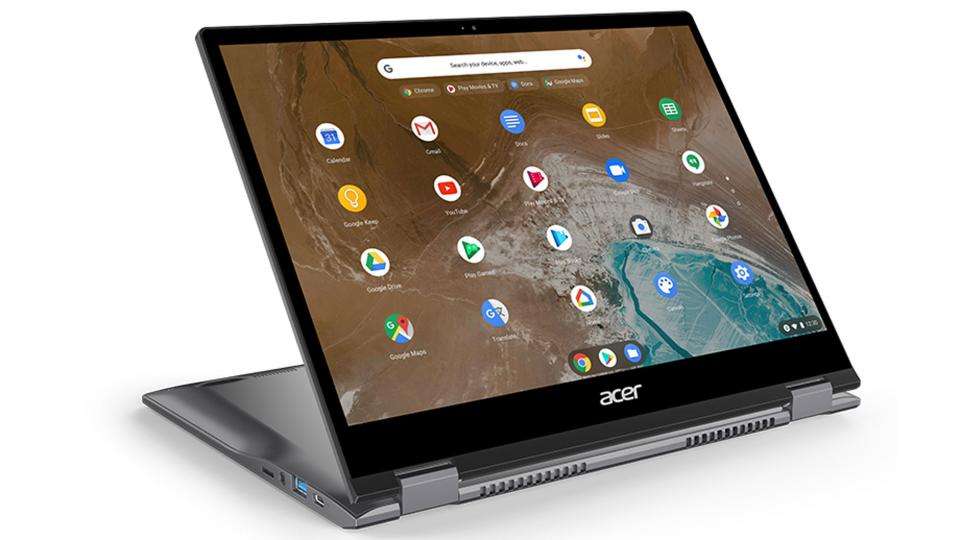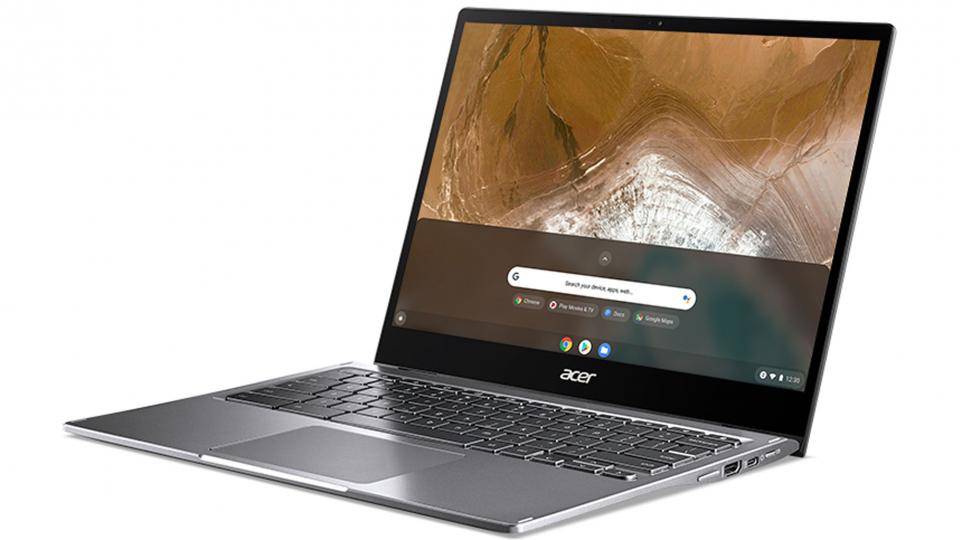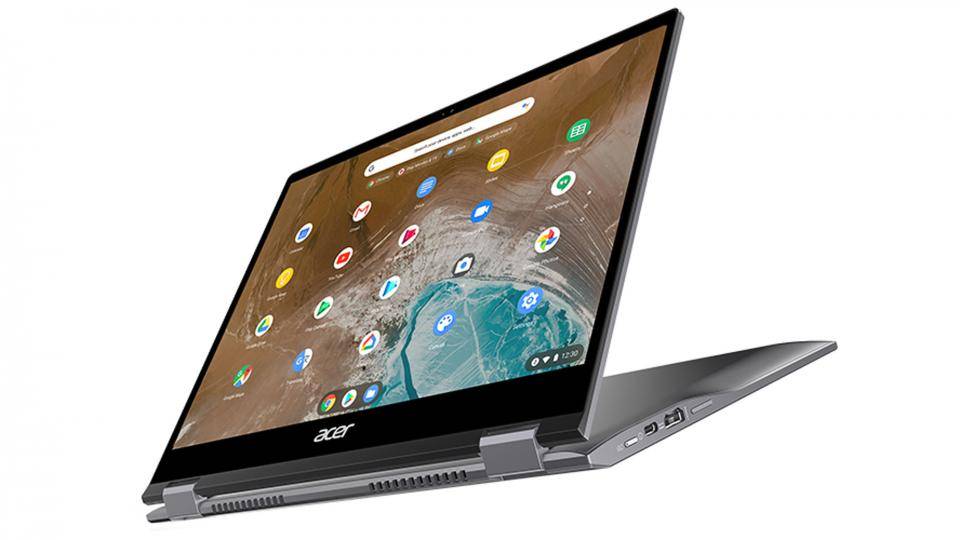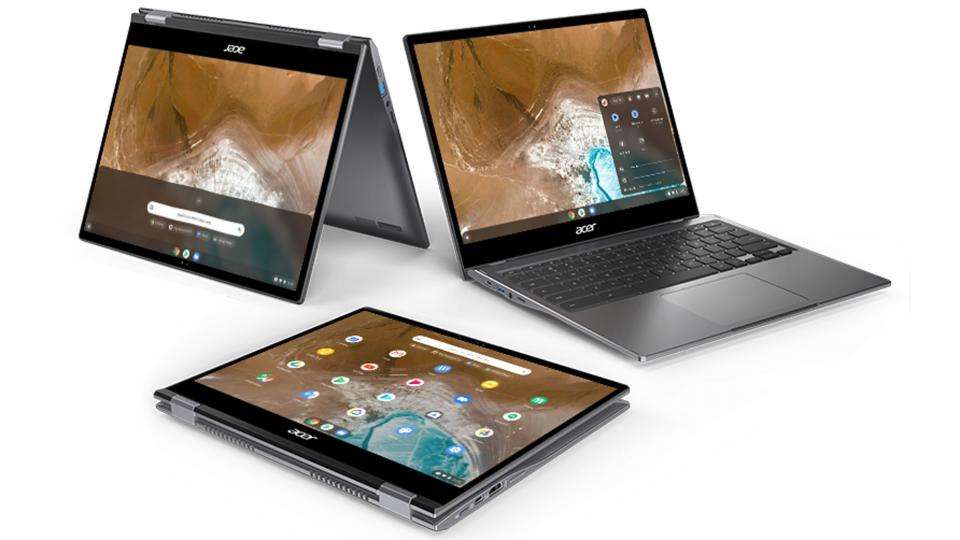If you’re one of those rare Chromebook devotees lamenting the demise of the classic Google Chromebook Pixel and Pixelbook , then the Acer Chromebook Spin 713 could be right up your street.
Miss the squarer 3:2 aspect ratio and QHD screen? The all-metal, thin-and-light design? The Pixelbook’s convertible form factor? Well, the Spin 713 has all these bases covered, only without the sky-high prices of Google’s own-brand Chromebooks, and with a spec that’s bang up to date.
Buy now from Acer
Acer Chromebook Spin 713 review: What you need to know
This is a convertible 2-in-1 Chromebook with an unusual 3:2 aspect ratio screen. Like other Chrome OS and Windows convertibles, it uses a flexible, 360-degree hinge to allow you to tilt the screen back so far that it sits flush against the base or you can position it at any point in between. This means you can use the Spin 713 as an oversized Chromebook tablet, though it’s inevitably thicker and heavier than an actual tablet, not to mention a good deal larger.
READ NEXT: Acer Chromebook 314-H review
Acer Chromebook Spin 713 review: Price and competition
Acer’s Chromebook Spin 713 starts at £599 for the 10th-gen Intel Core i3-10110U model. If you fancy more power, you can upgrade to either an i5-10210U or an i7-10510U (with double the RAM at 16GB) for £699 and £799 respectively.

The original Chromebook Spin was one of the first non-Google convertibles, but other manufacturers have also got in on the act since. HP has a line of X360 Chromebook convertibles, starting at £350 , while Lenovo has its IdeaPad Flex 5 Chromebook from £379. The Chromebook Spin 713 has a better screen and more style than either, but the Flex 5 is a real contender in terms of its performance and overall appeal.
Buy now from Acer
Acer Chromebook Spin 713 review: Design
The Chromebook Spin 713 is every bit as good-looking and versatile as previous Chromebook Spins, with a military-grade metal chassis in a gunmetal tone that’s under 17mm thick and just 1.45kg in weight. It’s very usable across clamshell, tent and tablet modes, partly because the aspect ratio works brilliantly for tablet use, where a 16:9 format can feel cramped. It also gives you the illusion of a bigger screen in laptop mode, thanks to the extra height. Switching between the 13.5in Acer and a 15.6in laptop on the same desk, it’s amazing that the Acer never feels small.

If you want to use the Spin 713 within a desktop setup, you’ve got all the connectivity you need. It’s one of the only Chromebooks we’ve looked at recently with an HDMI output (though you could use DisplayPort over a USB Type-C adaptor or hub if you prefer), while there’s a single USB 3.0 Type A port and two USB 3.1 Type-C ports. Acer gets extra credit on the wireless front, too, with 802.11ax/Wi-Fi 6 and Bluetooth 5 built in.
READ NEXT: Asus Chromebook C233 review
Acer Chromebook Spin 713 review: Keyboard and touchpad
As for usability, the Spin 713 makes the most of the available space with a good-sized backlit keyboard with large, flat keys and an equally sizeable touchpad, with a 3:2 aspect ratio to match the screen. The keyboard isn’t quite the best we’ve seen – while there’s enough travel, the action could be crisper – but it’s not far off the pace. Meanwhile, the touchpad is near impossible to fault, tracking fast movements and gestures perfectly. If this was your main working machine, you’d be perfectly happy.
Buy now from Acer
Acer Chromebook Spin 713 review: Display and sound
The IPS screen is fantastic, with an unusual 2,256 x 1,504 resolution that works brilliantly with Chrome OS’s desktop scaling. It’s bright, at nearly 400cdm2, and covers 99.8% of the sRGB colour space, not to mention 85.5% of DCI P3. We measured the average Delta E at just 2.29, so while colour accuracy isn’t quite perfect, it’s close enough for anyone bar professional designers.

Whether you’re streaming video or playing Stadia games, image quality is brilliant, with the only downside being its spectacularly reflective surface, which ups vibrancy and contrast at the expense of being able to see anything once you have any kind of bright light behind you. This isn’t an unusual problem for laptops, let alone Chromebooks, but you’ll need to think about where you sit and work.
Audio quality isn’t to be sniffed at, either. It’s very clear, with some warmth and bass, and can go quite loud without getting distorted or shrill.
Acer Chromebook Spin 713 review: Performance and battery life
Our test model came with a 10th-generation Intel Core i3-10110U processor with two cores and four threads clocked at up to 4.1GHz, and while it’s not the fastest Chromebook we’ve benchmarked recently, it’s not horribly off the leaders’ pace. With 8GB of RAM you really have to have a lot of Chrome tabs open or several demanding applications running before you’ll see any hint of slowdown, or even hear the Spin’s cooling fans go to work. Geekbench scores of 1,008 (single core) and 2,184 (multicore) show that it won’t have any issues running Android apps, and it could even run the GFXBench Manhattan 3 benchmark at 23fps (native resolution) or 53fps (1080p, off-screen).
In the event that you do need more power, there are Core i5-10210U and i7-10510U variants available for £100 and £200 more respectively. For most people, the Core i3 will be perfectly adequate, and the lower-power CPU has one advantage: with a battery life of 12 hours or more, you won’t run out of power before the day is done.
READ NEXT: Lenovo IdeaPad Duet review
Acer Chromebook Spin 713 review: Verdict
Perhaps the key thing about the Spin 713 is that it looks, feels and performs like a high-end Chromebook, while remaining thoroughly affordable. True, it’s not quite as speedy as the Dell Latitude 7410 Enterprise or HP C640 Enterprise, but it’s substantially cheaper while delivering a very similar experience.

In fact, it even trumps HP with a better screen. The IdeaPad Flex 5 Chromebook beats it on performance and the Asus C436 smashes it on style, but as an all-round, top-value option, the Spin 713 is fantastically good.
Buy now from Acer
